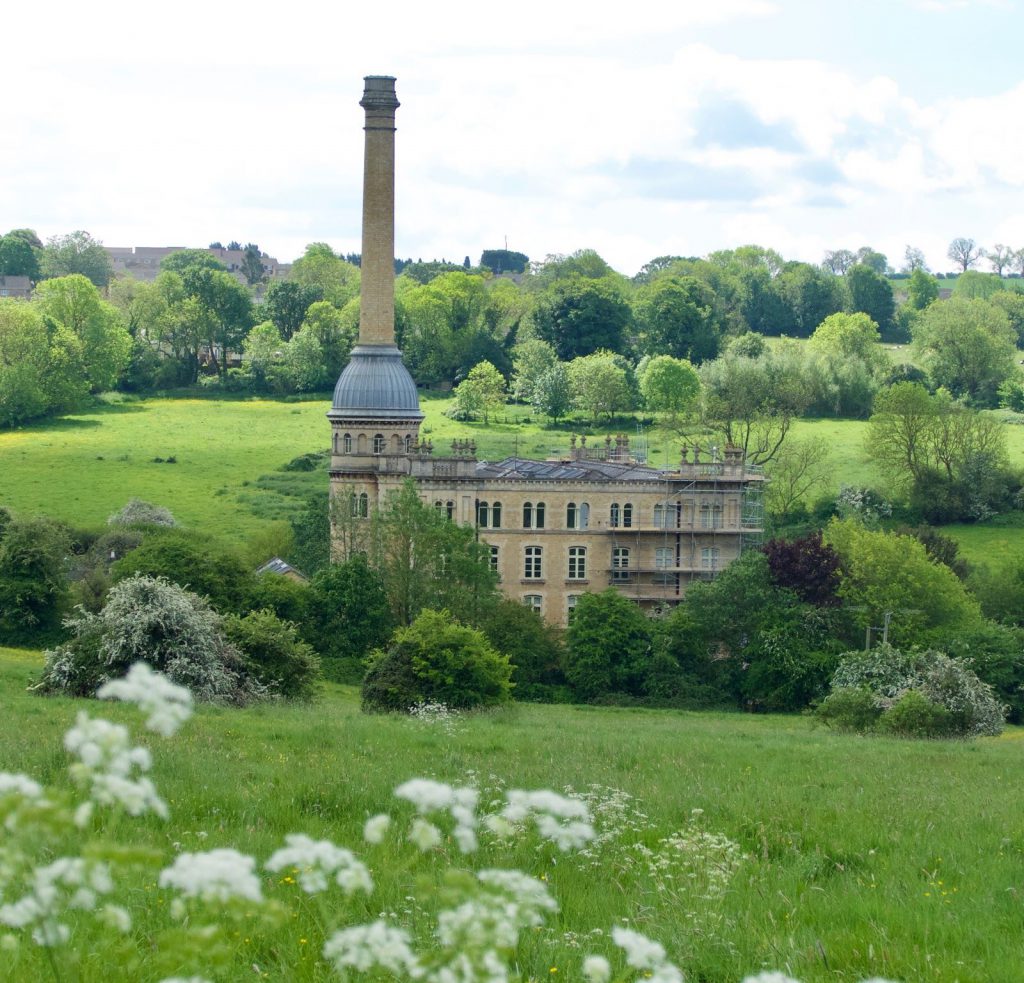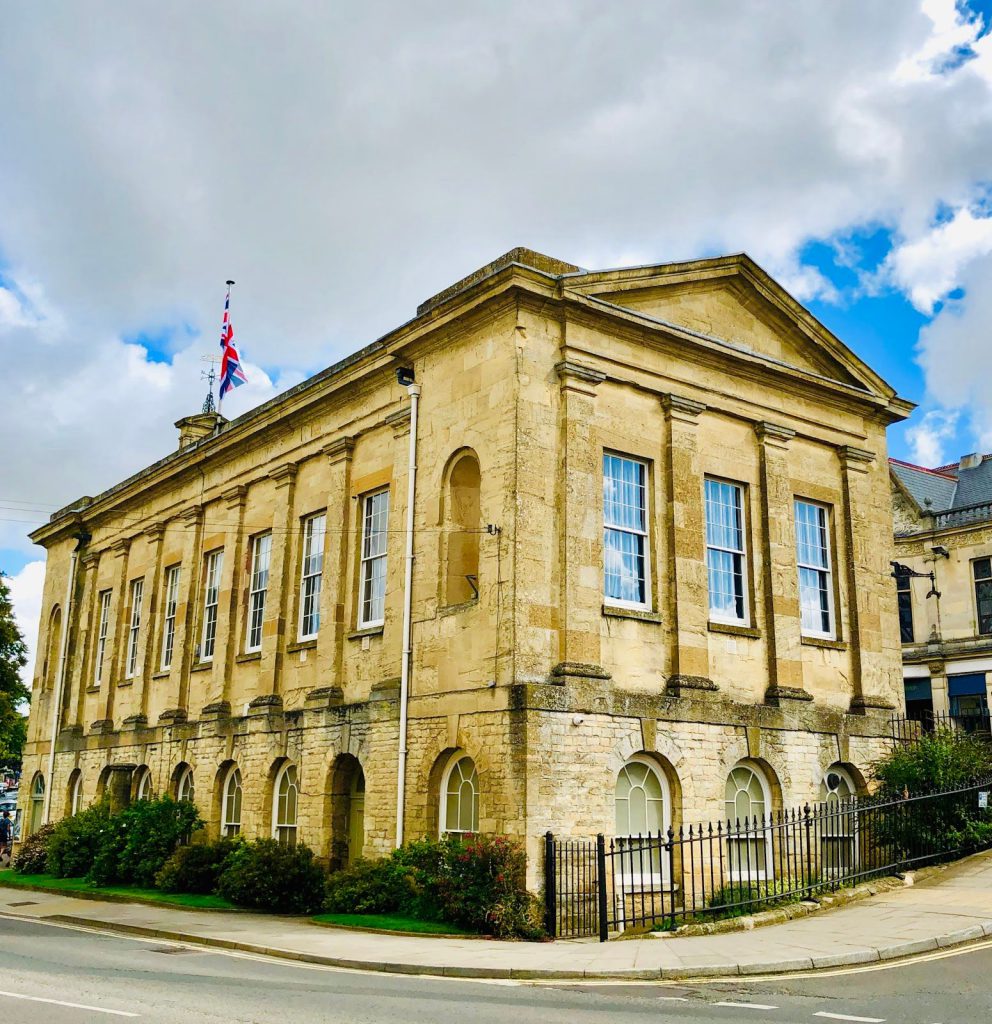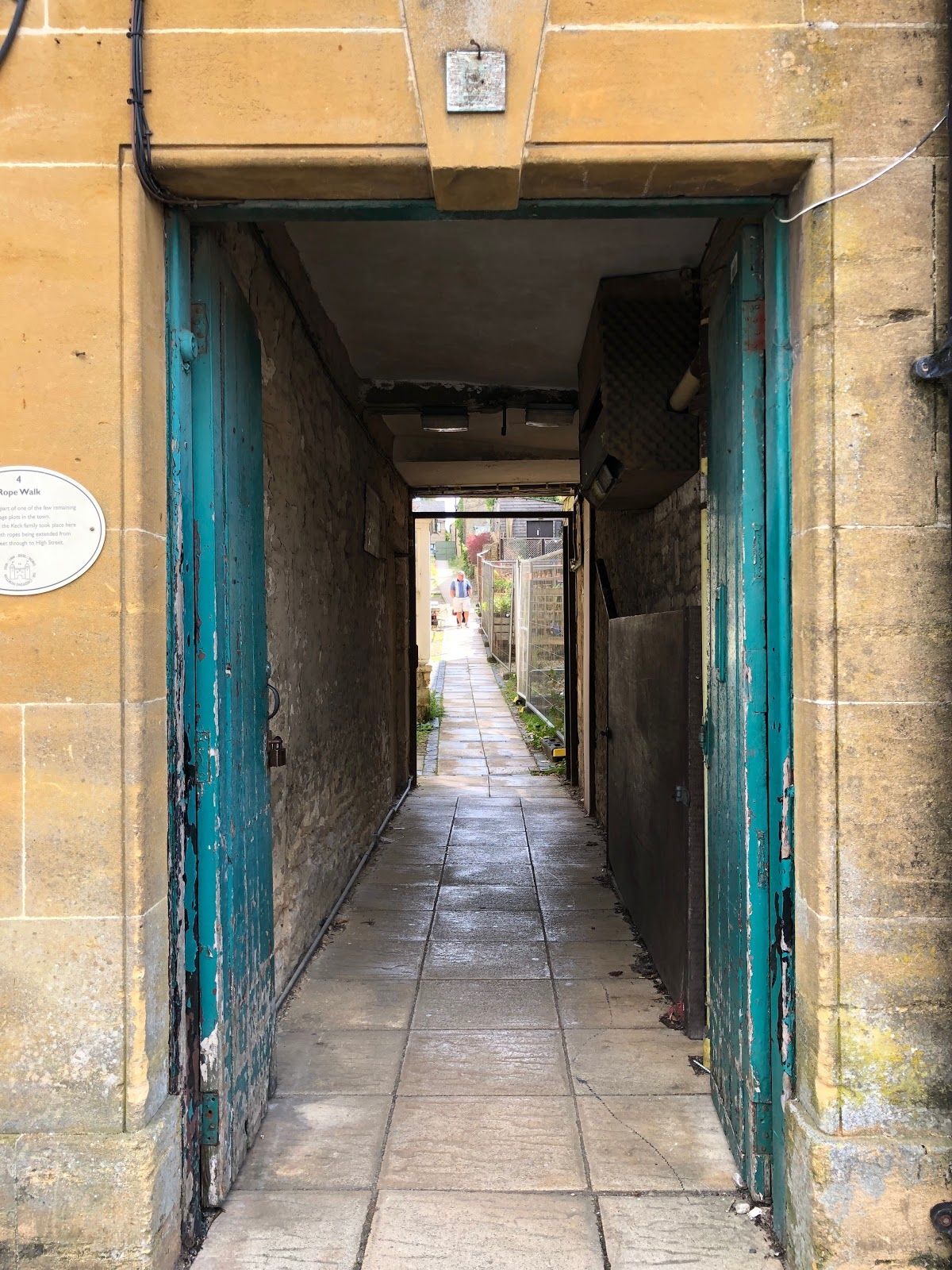Chipping Norton, or Chippy, as locals call it, is one of the highest towns in the Cotswolds, but this was not always the case.
The town began down in the valley of the River Glyme – the earthworks of the Norman castle, built to keep the locals in order are still there.
But the local lord William FitzAlan had ambitions to make the town a major centre, so he built a huge market square (bigger than the area it covers today) up the hill.
Houses were built to surround the market space, and the long, narrow alleyways behind them remain, showing that these were burgage plots: long, narrow sites that gave every shop a window onto the High Street – this is the origin of the phrase ‘window shopping’.
The medieval buildings around the market place benefited from a makeover after 1704. The construction of Blenheim Palace down the road made the ornate baroque style fashionable, and lots of Chippy’s main buildings got a makeover with smooth-stoned, symmetrical frontages.
Bliss Mill
However, cattle, horses and sheep were still sold here, as well as wool, which led to the development of the town’s weaving industry and the building of the iconic Bliss Mill.
The Bliss family played a huge role in the development of Chipping Norton, before they hit hard times and sold up in 1895.
The new management pushed down wages and resisted the rise of the workers’ rights movement. This led to a strike that is famous in trade union history, and one of Chippy’s alarmingly regular ‘riots’ as 50 policeman were needed to hold back picketing strikers when their fellow workers headed to do a shift at the mill.

Town Hall
Another uprising led to the 1845 trial of a policeman called Charles Knott who was over eager in calming down a belligerent pub customer, bashing him over the head with his cosh. The poor chap was flung into a cell underneath the new Town Hall. When they opened up the next day, he was dead. The policeman was found ‘not guilty’ because his victim, rather conveniently, was found to have an unusually thin skull.

Rock ‘n’ Roll
There were 20 coach houses in Chippy at one time, giving customers and horses a welcome respite from the bumpy roads. When rail took over, many continued as pubs, and legendary drummer with The Who, Keith Moon, briefly owned one here from 1970
Many of his mates from the music industry would have been the other side of the bar, for the town had a recording studio from 1972 to 1997. Its walls echoes to hits such as ‘Bye Bye Baby’ from the Bay City Rollers, ‘Too Shy’ by Kajagoogoo, and ‘Baker Street’ by Gerry Rafferty.
Today the town is a hidden gem in the Cotswolds, with independent shops, a wonderful ‘Woolgothic’ church, and a terrific theatre that lives in an old Salvation Army chapel and puts on one of the top pantomimes in the country every year.
… Oh yes it does!
A bit about the author
Sean Callery runs regular walking tours of Chipping Norton through his Offbeat Cotswolds guiding operation ( www.offbeatcotswolds.com ).
He is a Blue Badge Guide for the Heart of England.

Leave a Reply